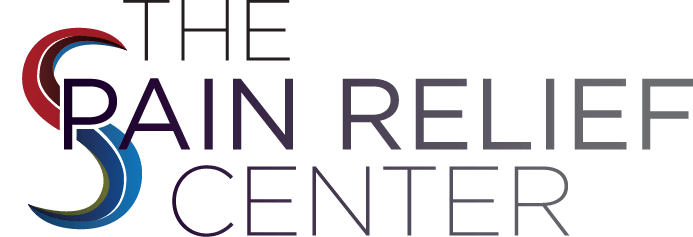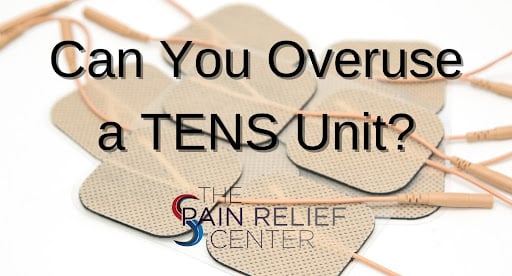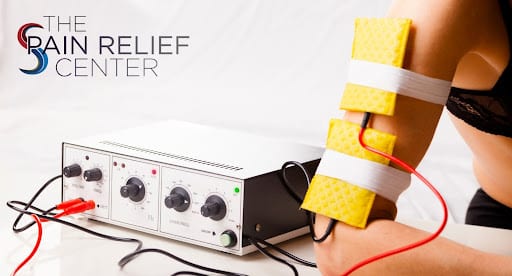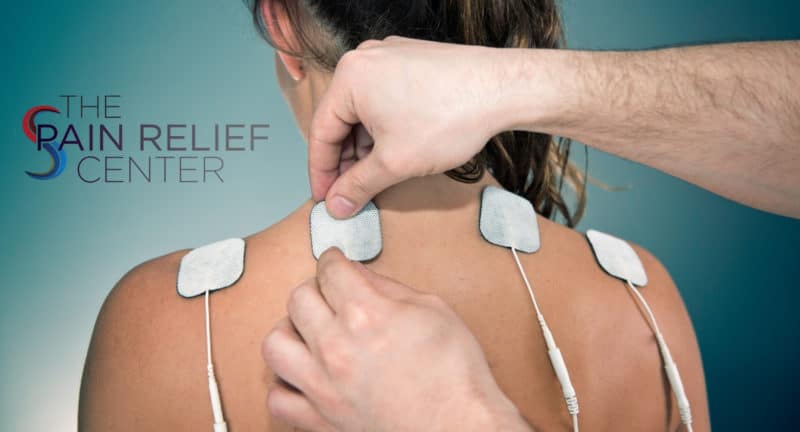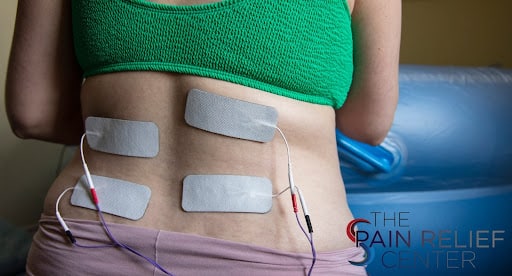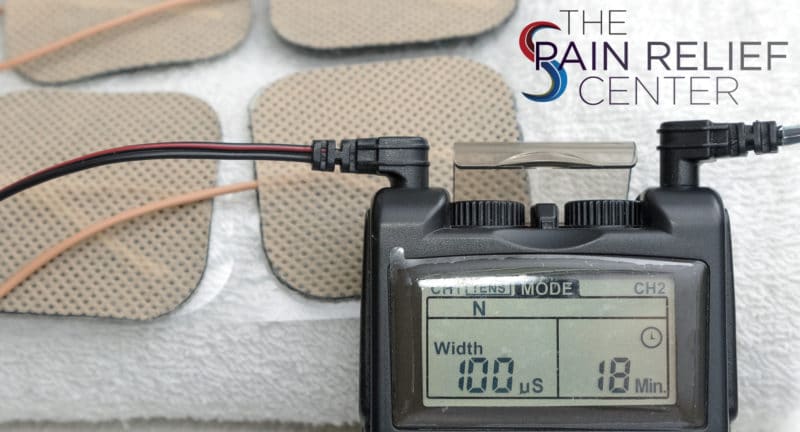Many different types of pain relief exist in many different forms. Sometimes, physical therapy is all that certain patients require. Other patients benefit from medication therapy. One method that many people have found success with is the use of TENS machines. But what are TENS units? Do they really work? And can you overuse a TENS unit? The Pain Relief Center is here to provide advice and answers about the use and benefits of TENS units. To schedule an appointment with a pain management specialist in Plano, please call 214-709-1904 today.
What Is a TENS Unit?
TENS stands for transcutaneous electrical nerve stimulation. Essentially, a TENS unit is a way to relieve pain by using mild electrical pulses. These small machines have leads that connect to sticky pads, also called electrode pads.
Transcutaneous means that the electrodes are strategically placed on top of the skin. When you power on the small, battery-operated device, it sends electrical impulses into the affected area of the body.
How Does a TENS Machine Work?
When the TENS machine sends those electrical impulses into the body, it can help to reduce the pain signals sent by the body to the brain and spinal cord. This leads to muscle relaxation and pain relief. Additionally, TENS machines can stimulate the body’s production of endorphins. Endorphins are essentially the body’s natural painkillers.
More specifically, transcutaneous electrical nerve stimulation (TENS) reduces the ability of the nervous system to send pain messages to the brain and spinal cord. This, coupled with the body’s release of endorphins while using the machine, provides much-needed pain relief.
How Do You Use a TENS Machine?
NOTE: We recommend scheduling an appointment with your pain relief doctor to understand how to use your TENS unit, as well as where to place the electrodes and what settings are best for you. It may be difficult to determine this information on your own.
Before using a TENS machine, it’s important to understand exactly how to use it. Prior to turning it on, we recommend testing the battery levels to ensure a full charge. Identify the control knobs. One knob increases and decreases the strength of the electrical current. The other knob controls the speed of the signals. Before you switch on your machine, we recommend ensuring that both of these knobs are in the “Off” position.
Before you begin with electrode placement, clean the skin where you intend to place them with alcohol. Let the skin fully dry. Then, you will put a thin coat of electrode gel on each electrode. Make sure that the gel is on the same side of the electrode that will make contact with the skin. This gel helps the electrical impulses reach the nerve endings in your skin.
Then, place the electrodes on the affected areas, using medical-grade tape or patches to secure them to the skin. If you are placing electrodes in hard-to-reach places, we recommend having someone help you with placement.
Once placed, hook up the connectors at the end of the wires to the electrodes. Plug the wires into your TENS unit. Slowly turn the control knobs to reach the appropriate setting. You will feel a tingling sensation when the TENS treatment begins.
How Effective Are TENS Machines?
This varies on a patient-to-patient basis. If you are considering TENS, we recommend speaking with our pain relief specialists. TENS is a relatively popular option due to its non-invasive nature when compared to other procedures. If you are looking for a way to treat pain in the moment, TENS may be an appropriate solution for you.
Do TENS Units Work?
Unfortunately, TENS is not an effective way to alleviate pain for every person. However, many people have found great success with it. Scientific evidence does not concretely support TENS units as reliable ways to manage pain. Each patient is different, however. What works for you may not work for someone else, and vice versa.
Generally, TENS helps some people with pain reduction. Its effectiveness depends largely on each patient, as well as the specific conditions they intend to treat. TENS will not cure chronic pain. It mostly provides short-term pain relief, much like pain medications. Patients can use a TENS unit as a supplemental method of pain relief in addition to other treatments.
Benefits of TENS Units
Using a TENS unit has many benefits and is effective for many types of pain. Below, we list several benefits of TENS.
- Cost-effectiveness
- Non-invasive alternative
- Helps with many types of pain, including the following
- Joint pain
- Acute pain
- Chronic pain
- Sports injuries
- Period and labor pain
- Endometriosis
- Fibromyalgia
- Diabetic neuropathy pain
- Spinal cord injuries
- Arthritis pain
- Reducing your intake of addictive pain killers
What Does a TENS Unit Feel Like?
When you begin your TENS therapy, we recommend that you gradually increase the small electrical impulses until you reach a comfortable treatment intensity. TENS usually feels like a mild buzzing, tingling, or muscle twitching. It should not hurt at all. The intensity should be strong but still comfortable enough for you to endure for the duration of the treatment.
Can You Overuse a TENS Unit?
Technically, no. Although, if you experience muscle twitching during treatment, you might want to consider taking breaks after 30-minute sessions. Excessive twitching can lead to muscle soreness and fatigue.
If you do not experience muscle twitching, we recommend taking at least a 10-minute break every hour that you use the unit. You can use the machine as much as you like throughout the day. Some patients even use the units for upwards of five hours a day.
Can a TENS Unit Cause Muscle Damage?
As we stated previously, TENS can cause muscle twitching. Long-term TENS use that causes muscle twitching can fatigue the muscles. It can also cause an excessive accumulation of waste materials, which could lead to muscle damage over time. This is why we recommend taking frequent breaks when using a TENS unit.
The main side effect of TENS use is mild skin irritation at the site of the electrode.
How Many Hours a Day Can You Use a TENS Unit?
We have different recommendations depending on the type of pain you wish to treat with your unit. For acute pain, we recommend using your unit for twenty to sixty minutes at a time, four times a day. Take at least a ten-minute break in between sessions.
For chronic pain, we recommend using your unit for twenty to thirty minutes, up to five times weekly. Usually, a TENS machine can provide relief for up to four hours at a time. For this reason, you should not use the unit nonstop or excessively.
Can a TENS Unit Damage Nerves?
Using high intensity and high pulse rate settings does not result in nerve damage if used for short-term stimulation. However, chronic or excessive stimulation can damage the structure of the nerves. This structural damage may disturb the overall function of the nerves. Speak with a trusted health professional before ever using your TENS unit. This will help you determine placement, intensity, frequency, and more.
How High Should I Set My TENS Unit?
This depends on what you intend to treat with the unit. You can achieve effective pain relief at many different pulse rates or frequencies. To treat acute pain, we recommend setting your unit somewhere between 80 Hz and 120 Hz. For chronic pain, set your unit somewhere between 2 Hz and 10 Hz. This will stimulate the release of endorphins. To stimulate your muscles and achieve relaxation, set your unit somewhere between 35 Hz and 50 Hz.
How Long Should You Use a TENS Unit Per Session?
TENS is more effective if you use it while you are active. You could use the unit while doing housework, going for a walk, or engaging in another non-strenuous activity. While you can still use the unit while sitting or lying down, it is less effective when used in this way.
Contact a Pain Management Specialist in Plano Today
If you are struggling to manage your chronic or acute pain, The Pain Relief Center is here for you. We can help you identify the source of your pain, then treat that pain in the best way possible. If you suffer from back pain, neck pain, arthritis pain, or other forms of pain, TENS may be a valid option for you. To schedule an appointment with a Plano pain specialist, please call 214-709-1904 today.
